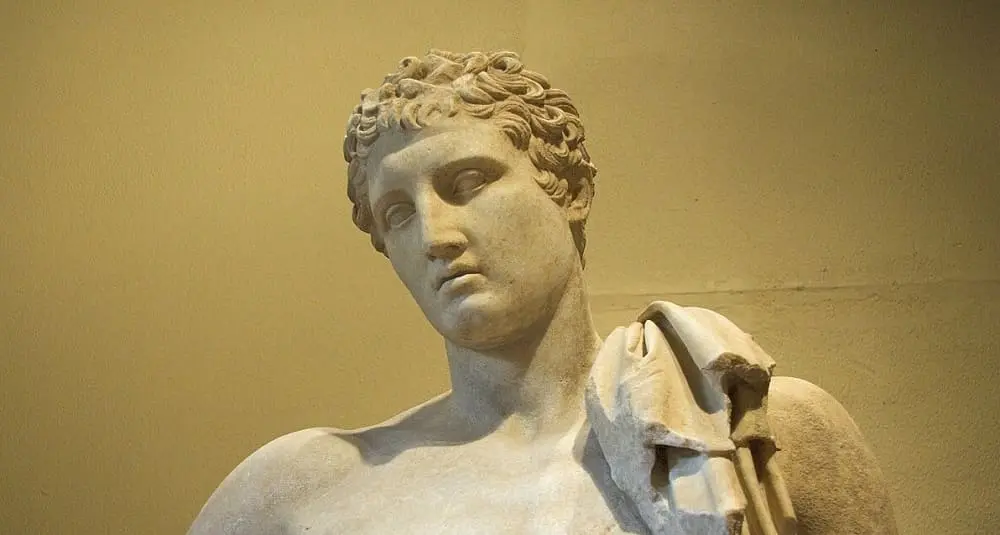Who is Hermes in mythology?
Last Updated:
In Greek mythology, Hermes is a versatile deity, associated with trade, travelers, thieves, eloquence and cunning. He is also known as the messenger of the gods and conductor of souls to the underworld. Son of Zeus, king of the gods, and the nymph Maia, Hermes is one of the twelve gods of Olympus and plays an essential role in many myths.
Hermes is often depicted wearing winged sandals, a traveler’s hat (the petasus) and a caduceus, a staff with two snakes wrapped around it. These elements symbolize his role as a divine messenger and his power to mediate between the different worlds of gods, humans and the dead. Thanks to his speed and intelligence, he is Zeus’ privileged messenger and one of the few gods able to move freely between Olympus, Earth and the Underworld.
From the moment he was born, Hermes displayed exceptional intelligence and cunning. According to legend, while still a baby, he stole Apollo’s oxen by skilfully covering his tracks. To make amends, he offers Apollo the lyre, an instrument he has just invented from a tortoise shell. This myth illustrates his ingenious character and his gift for barter and exchange, making him the god of commerce and transactions.
As god of roads and crossroads, Hermes watches over travelers and merchants, guaranteeing them a safe and prosperous journey. The Greeks often placed hermes, sculpted stones bearing his effigy, along roadsides and at the entrances to cities, to ask for his protection. He is also the god of merchants and trade, governing exchanges and markets, but also of thieves and swindlers, which testifies to his ambivalent character.
In addition to his role as messenger, Hermes is also a psychopomp, or guide of souls to the Underworld. After death, he accompanies souls into the realm of Hades, facilitating their passage between the world of the living and that of the dead. This function reinforces his image as an intermediary god, able to navigate between the different spheres of existence.
Hermes is a god deeply rooted in Greek and Roman culture (where he is equated with Mercury). His image has endured through the centuries, notably in literature, philosophy and even everyday language, with expressions such as hermetic, evoking mystery and discretion, or caduceus, symbol of commerce and sometimes mistakenly used to represent medicine.
Hermes embodies speed, intelligence, ingenuity and communication, qualities that make him an essential figure in Greek mythology and a particularly fascinating god.
You may also be interested in
history

Who is Hermes in mythology?
Answer
In Greek mythology, Hermes is the messenger of the gods, the god of trade, travel, thieves and eloquence. He also guides souls to the Underworld.